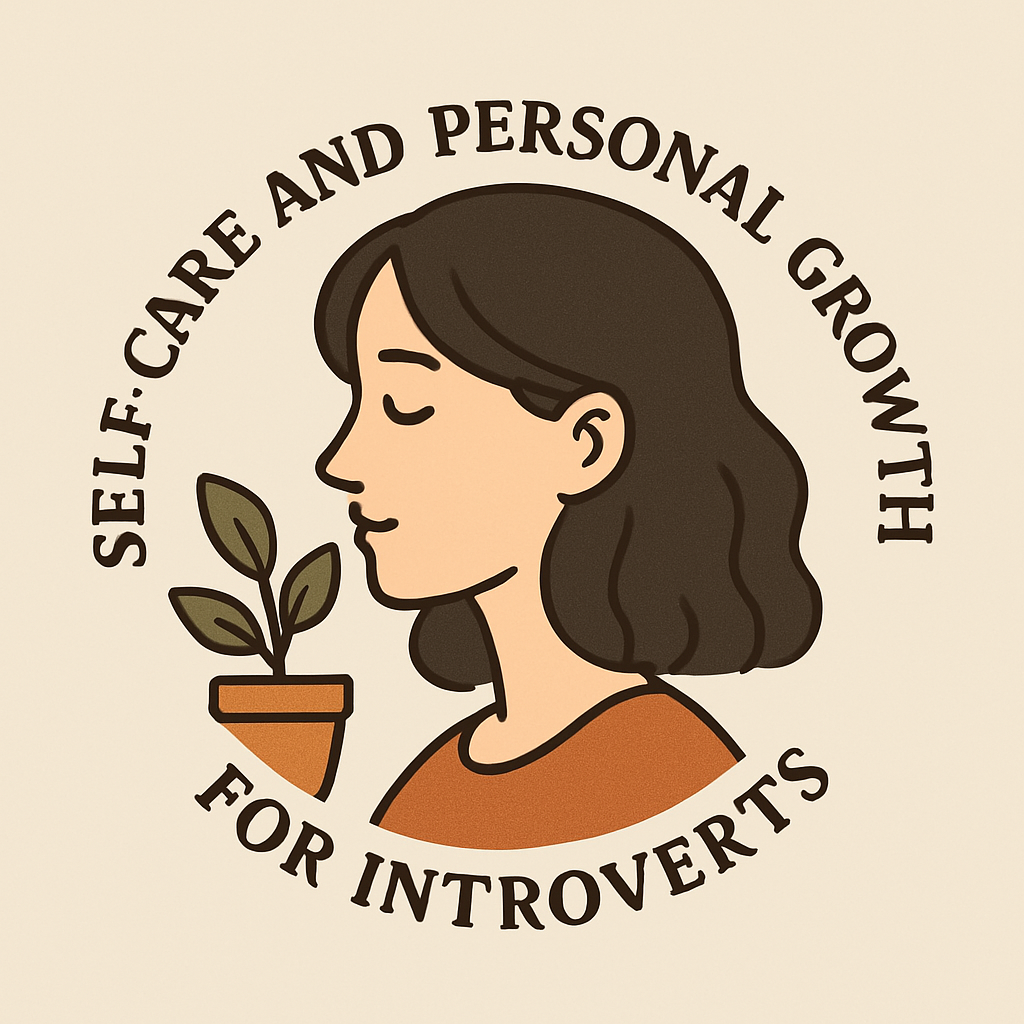Feeling Misunderstood? How Introverted Women Can Communicate Their Needs Effectively

Do you ever feel like you're speaking a different language? Like your need for quiet time is mistaken for disinterest, or your careful consideration is seen as hesitation? For many introverted women, the feeling of being misunderstood is frustratingly common. Whether it's navigating social dynamics, workplace expectations, or even close relationships, expressing your needs effectively when your natural inclination is towards internal processing can feel like an uphill battle.
This isn't just a minor inconvenience; it can impact your well-being, your relationships, and your career. You might find yourself frequently feeling misunderstood at work as an introvert woman, leading to burnout or missed opportunities. But here's the empowering truth: your introversion isn't a barrier to clear communication. It's about finding the right approach. This post is part of your personal growth journey as an introverted woman, exploring why these misunderstandings happen and providing effective communication strategies for the quiet female to articulate needs clearly and confidently.
Why Do Introverted Women Often Feel Misunderstood?
Understanding the root cause is the first step towards finding solutions. Several factors contribute to this common experience:
Internal Processing vs. External Expectation
Introverts often process information deeply internally before speaking. In a world that frequently values quick, verbal responses, this thoughtful pause can be misinterpreted as uncertainty, lack of knowledge, or disengagement. People might jump in, answer for you, or move on before you've formulated your perfect response.
Need for Solitude vs. Social Norms
Your energy is a precious resource, often replenished through solitude rather than constant external stimulation. Politely declining a social event after a long week, needing quiet time after a meeting, or preferring focused solo work can sometimes be perceived negatively – as being aloof, unfriendly, or not a team player – especially if not communicated clearly.
Subtle Communication Style vs. Louder World
You might rely on subtle cues, thoughtful emails, or one-on-one conversations. In environments dominated by louder voices or where quick, assertive declarations are the norm, your quieter, more nuanced style might get overlooked or underestimated. This feeling of being overlooked can sometimes contribute to a fear of missing out (FOMO), especially when comparing oneself to more outwardly active peers; taming that FOMO is an important aspect of self-care.
Energy Drain from Overstimulation
Constant interaction, noisy environments, or high-pressure group settings can be draining. When you're feeling depleted, communicating effectively becomes even harder, potentially leading to shorter responses or withdrawal, which can again be misunderstood.
The impact? Feeling overlooked, undervalued, drained, and frustrated. This is particularly challenging when feeling misunderstood at work as an introvert woman, where clarity, collaboration, and visibility are often key.
The Powerful Link: Communication and Your Personal Growth Journey
Learning to communicate your needs effectively isn't just about avoiding misunderstandings; it's a fundamental part of your personal growth journey as an introverted woman. When you can articulate what you need – whether it's space, time to think, specific feedback, or a different way of collaborating – you unlock several benefits:
- Stronger Relationships: Clear communication builds trust and understanding, reducing friction and fostering deeper connections.
- Better Boundaries: Effectively stating your limits protects your energy and prevents resentment.
- Increased Confidence: Successfully navigating communication challenges builds self-assurance in your ability to handle various situations.
- Reduced Stress and Burnout: Getting your needs met prevents the chronic stress that comes from constantly feeling drained or overlooked.
- Greater Self-Awareness: The process of identifying and articulating your needs deepens your understanding of yourself.

Effective Communication Strategies for the Quiet Female
Ready to bridge the communication gap? Here are some effective communication strategies for the quiet female, tailored to leverage your introverted strengths:
Prepare and Plan Ahead
Your strength lies in thoughtfulness. Use it! Before important conversations (meetings, reviews, discussions about needs), take time to outline your key points. What is the main message? What are your specific needs or requests? What are potential counterarguments or questions? Having notes can be incredibly grounding.
Choose Your Time and Place Wisely
Avoid trying to have important conversations when you (or the other person) are rushed, stressed, or in a noisy environment. Request a specific time to talk. Suggesting "Could we chat for 15 minutes tomorrow morning about X?" gives you both time to prepare and ensures a more focused conversation.
Be Direct and Specific with "I" Statements
Vague hints often get missed. Instead of hoping someone notices you're overwhelmed, state your need clearly and focus on your experience.
Instead of: "It's just been so busy lately."
Try: "I need some focused time to complete the report accurately. Could I block off my calendar tomorrow morning?"
Instead of: "Group brainstorming is a bit much sometimes."
Try: "I find I contribute best when I have time to think through ideas first. Could we perhaps circulate the agenda beforehand, or could I share my thoughts via email after the meeting?"
Embrace the Power of Written Communication
Don't underestimate emails, messages, or shared documents. These formats allow you to formulate your thoughts carefully, edit for clarity, and provide a record. It's often an ideal way to follow up after a verbal conversation, confirming understanding and next steps. This is one of the most powerful effective communication strategies for the quiet female.
Set Boundaries Proactively, Not Reactively
Don't wait until you're completely drained or frustrated. Communicate your needs before overwhelm hits. This might mean saying "no" more often, scheduling focused work time in your calendar, or letting colleagues know your preferred communication methods for non-urgent matters. (Learning how to set boundaries gently is a key skill here.)
Practice Active Listening (Even While Speaking Less)
Communication isn't just about talking. Show you're engaged even when quiet. Use non-verbal cues like nodding, maintaining eye contact (as comfortable), and asking clarifying questions ("So, if I understand correctly, you need X by Y?"). This demonstrates attentiveness and ensures you fully grasp the situation before responding.
It's Okay to Pause – Own It!
Normalize needing time to think. Instead of feeling pressured to respond instantly, try phrases like:
- "That's an interesting point. Let me take a moment to consider that."
- "Can I get back to you on that this afternoon? I want to give it some proper thought."
- "I need to process that. Let's revisit it in our next check-in."
Navigating Misunderstandings Specifically at Work
The workplace presents unique challenges. The pressure to be constantly "on," participate loudly in meetings, and engage in open-plan office chatter can make feeling misunderstood at work as an introvert woman especially acute. Apply the strategies above, and consider these work-specific tips:
- Schedule Regular 1:1s: Use dedicated time with your manager or key colleagues to discuss progress, challenges, and needs in a focused, less overwhelming setting.
- Follow Up Verbals with Written Notes: After important meetings or discussions, send a brief email summarizing key decisions, action items, and your understanding. This clarifies things for everyone and utilizes your strength in written communication.
- Clarify Expectations Explicitly: Don't assume. If instructions or project goals seem unclear, ask specific questions until you're confident you understand. "Just to confirm, the top priority for this week is X, correct?"
- Showcase Contributions Strategically: If speaking up in large groups is difficult, find other ways to demonstrate your work. Share progress updates via email, prepare thorough reports, or contribute thoughtfully in smaller team huddles or via collaborative documents. (Building this visibility is also part of boosting your confidence authentically.)

Embrace Your Introversion: It's a Strength, Not a Weakness
Perhaps the most crucial step in your personal growth journey as an introverted woman is reframing how you see your introversion. It's not something to "fix" or overcome. Your ability to listen deeply, observe nuances others miss, think critically, and focus intently are incredible assets.
Effective communication for you isn't about becoming an extrovert; it's about finding authentic ways to express yourself that honor your natural tendencies. It's about understanding your needs and having the courage and the tools to articulate them.
Moving Forward with Clarity and Confidence
Feeling misunderstood doesn't have to be your default setting. By understanding the dynamics at play and consciously implementing effective communication strategies for the quiet female, you can navigate interactions with greater ease and confidence. Remember to be patient with yourself; like any skill, communication improves with practice.
Challenge the narrative that equates quietness with lack of engagement or capability, especially when feeling misunderstood at work as an introvert woman. Your thoughtful approach is valuable. Your need for space is valid. Your voice matters. Learning to express these effectively is a powerful act of self-care and a vital part of your ongoing personal growth journey as an introverted woman.

